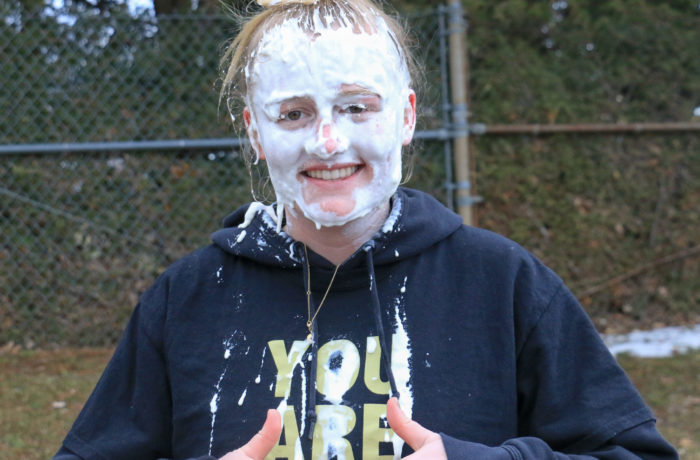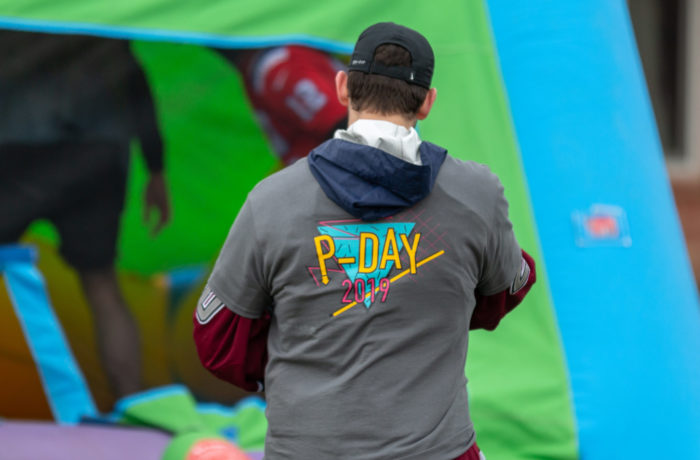By Meg Friel
News Editor
Riley Cantara* woke up the Saturday morning of Halloween weekend on a mattress on the ground in Act1, the Public Inebriate Program in Chittenden County, often used as a place to spend the night when someone is too intoxicated to stay on campus. “I was taking shots of tequila and funnelling, and I wasn’t keeping track,” Cantara said of the night before. “It got really out of hand. I ended up blacking out and I don’t really remember what happened, but I do remember being in back of the police car.”
After coming back to campus the following morning, she went through the typical procedures of a night like this – a meeting with assistant dean of students, Jeff Vincent, discussing the limits of a typically six month probation, and having to face the question, “Do I have a problem?”
“Students usually in the moment are as self aware as they’re ever going to be, and that moment right there may say, ‘I think I have a problem,’’ Vincent said. “It’s not an uncommon conversation to have right then at 9:00 on Sunday morning. We walk them through that. Do you need to see someone right now? Do you need help right in this moment? Is it continuing for you? Are you okay?
“98 percent of the time students are aware of what’s going on with them. I know it’s not an easy thing to just talk about cold, so, that doesn’t always happen. But, at least the seeds are planted.
“If and when you think you need more help – it’s there.”
Students often brush off the nights they don’t remember as just having fun – it’s college. But when a few beers on Friday turns into a few beers every night, and a fun weekend turns into a blur of bottles and booze, how do we draw the line between college culture and an addiction?
According to a national survey done by the Substance Abuse and Mental Health Services Administration (SAMHSA), almost 60 percent of college students ages 18-22 drank alcohol in the past month, and almost 2 out of 3 of them engaged in binge drinking during that same time frame.
“It was horrifying. I woke up in this foreign place with just a mattress on the ground. I still had my costume on and I immediately looked outside and I was like, ‘ Oh no. I’m in Act One,’” Cantara said. “I was kind of drinking a lot, and I think it’s just because it’s the weekends. Everybody does it, it’s socially acceptable, but for a while after Act1 I didn’t drink because I was so haunted by the memories. Now, I limit my alcohol, and when I’m taking shots or drinking with my friends I’m more cautious of how I feel and what’s going on around me.”
Not everyone’s experiences with alcohol on the weekend cause self reflection. Ben McClure* was caught by public safety with a beer in Alumni hall this year, and soon afterwards was put on probation. However, this didn’t stop him from going out.
“I was on disciplinary probation where I wasn’t supposed to go out for two months, but I still went out and just tried to keep my head down,” McClure said. “ I was just going out on the weekends like everyone else does. They tried to tell me to stop doing everything and I was like, ‘Am I just going to sit in my room on the weekend?’”
Drinking on the weekends is seen as a right of passage for college students, said Cantara.
“I think a lot of college students do drink every day. I personally feel that if you’re drinking every day, that is kind of a problem with alcoholism,” Cantara said. “I think that if you feel that you need a drink, even if you’re not getting drunk, just to get you through the day, you’re verging on problems with alcoholism.”
Director of Residence Life Louis DiMasi says one of the biggest warning signs within student drinking is when they begin to develop a serious pattern of drinking behaviors that can become dangerous.
“When it comes to students on campus and alcohol use, alcohol addictions – students usually come with their bags packed,” DiMasi said. “There are very few students here at St. Michael’s College who are having their very first beer. It’s very difficult for students to live in an environment where they have a pattern that is already developed. When we talk about addictions, students are either going to enhance or restrict their pattern on the college campus.”
SAMHSA defines binge drinking as four drinks for women and five for men within two hours. The National Institute on Alcohol Abuse and Alcoholism defines low-risk drinking as no more than 3 drinks on any single day and no more than 7 drinks per week for women. For men, it is defined as no more than 4 drinks on any single day and no more than 14 drinks per week. SAMHSA defines heavy alcohol use as binge drinking on 5 or more days in the past month.
“I think people put their problems aside as, ‘I’m in college, it can’t be alcoholism,’” McClure said. “Obviously, I drink during the week, and I don’t get blackout drunk during the week, but I’ll just have a few beers and hang out. I think if I were out of college and doing that and still getting destroyed on the weekends, it would be considered alcoholism.”
In moderation, drinking is socially acceptable. However, the media often depicts college partying as blackout drinking.
“Definitely now on the weekends I’m like, ‘I’m just going to drink six seltzers because I know that’s what’ll get me buzzed,’” Cantara said. “If you’re shy, you feel that drinking a lot with your friends in a group setting with make you feel better. I know for me personally I am more of a timid person. Drinking makes me feel more social and more talkative, and it helps, but I think for me finding the root of the problem is that I need to find a way to be more talkative without the aid of alcohol.”
Although St. Michael’s College is mixed with a variety of behaviors when it comes to the weekends – some stay inside to binge watch Netflix, while others are determined to binge drink – it’s not uncommon to hear stories of students being taken to Act1 after they get too out of control.
“I don’t think anyone wakes up on Friday and says, ‘I’m going to be so out of control tonight that I’m going to be sent to the hospital and Act One and it’s going to be a great night for me,’” Vincent said.
Some students claim their goal for the night is to blackout. The race to see how much alcohol you can drink in as little time possible in order to get as drunk as possible quickly is one often seen on campus. However, the long term effects of this can follow you after your four years are over.
“I think that people leave with the same mentality, ‘I’m just going to get slaughtered on the weekend,’ and that’s not the case,” Cantara said. “After college we’re in the real world. I think [drinking every day] is alcoholism and college is just a big excuse. I think if you feel the need to have alcohol every day, no matter if you’re in college or 26 and working, it’s alcoholism.”
If you think you have a problem:
In an article posted by the Harvard Medical School, MD Marcelo Campos, an MD uses one question in defining an alcohol problem. “How many times in the past year have you had five (for men) or four (for women) or more drinks in a day? A response equal to or greater than ‘once’ identifies, on average, eight out of 10 people with AUD. A positive answer should trigger a more thorough evaluation in a doctor’s office, or least stimulate a reflection about one’s drinking behavior.” If you or someone you know is struggling with alcoholism, reach out to the Bergeron Wellness Center or the Student Life Office for on-campus help. For help outside of St. Michael’s, visit Act1 at 184 Pearl Street, Burlington, VT, or call Alcoholic Addiction Hotline at (888)-633-3239.


